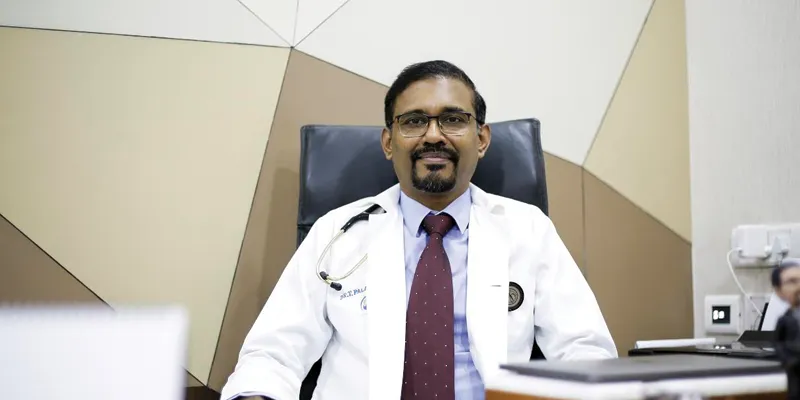
Medway Hospitals
View Brand PublisherHow Medway Hospitals is giving patients in Tier 2 cities access to quality healthcare that is affordable with no hidden costs
In the medical profession, compassion for patients is deemed as essential to the healing process as sound medical knowledge and ethics. In fact, studies show that a good bedside manner has a significant impact on the patient’s recovery.
With healthcare costs skyrocketing, access to comprehensive healthcare services that are both high quality and affordable has become a huge challenge.
With this in mind, Medway Hospitals was started in 2012 to create an ecosystem of compassionate healthcare; there are currently three integrated multi-speciality units in Tamil Nadu—two in Chennai and one in Kumbakonam.
Increasing access to world-class healthcare services
According to its founder Dr T. Palaniappan, “I wanted to establish a hospital where the main aim is to provide world-class quality healthcare to people of all segments at affordable prices with no hidden costs, and without compromising on the quality of the service.” That, he says, is Medway’s USP.

“We believe in the concept of “small is big”. Our focus is to offer a holistic approach where the patients get personalised treatment and feel they are getting value for their money. Our billing system is extremely transparent. Also, our group of specialised doctors are always vigilant about any new healthcare policies and changes and in research and development to optimise the healthcare we provide.”
He cites an instance of this principle in action. “We had a patient from Kolkata with a rare disorder, where he would faint every few hours. While he was taken to different hospitals in the country, none of them could find the exact issue. It was believed that he could be suffering from some neurological or cardiac problem. When he was brought to Medway, we found that he had a tumour in his pancreas and suffered from a rare condition called insulinoma. We performed a surgery on him and today he is leading a normal life.”
“Another time, our team of specialists successfully performed a difficult surgery for customised hip replacement for the first time in the country,” he says.
Personal touch still important in technology-driven era
Such achievements, he says, are possible because of an approach that marries technology with the human touch. “Technology acts as a catalyst and boon. It has helped us be more effective and provide tangible results. It has increased the accessibility of the treatment and has changed the overall approach to healthcare in a Tier 2 city like Kumbakonam. The integrated tele-ICU at Medway Kumbakonam helps us share the patients’ condition in a secure and faster manner with specialists sitting far away for better treatment.”
But, he adds, that technology without human touch is not as effective. With the digitalisation of healthcare, trends such as remote patient monitoring and telemedicine are becoming more prevalent. According to Dr Palaniappan, there are pros and cons. While these helps lower the cost, with the same amount of care being provided to patients even in remote areas, he says, “We believe in the personal touch and most patients would want the same, even in today’s fast-paced life. The personal touch can only be developed when we meet the patient directly. A doctor’s personal attention is pivotal to any patient’s recovery, and we at Medway believe in it and practise it.”
Running a successful hospital chain is a challenging task and Dr Palaniappan says that chief among these challenges is hospital administration and retention of quality healthcare personnel. “Attrition is always a challenge in the hospital industry; quality doctors and nursing professionals don’t stick to a hospital for a long time. We hire and train them and provide them with best remuneration; despite this, retention is still a challenge.”
A specialist in internal medicine and intensive care, Dr Palaniappan has an MBBS from Madras Medical College, Chennai, with an MD from J.N. Medical College, Belgaum, and a DNB from the National Board of Examinations (NBE), New Delhi. He is a qualified Member of National Board of Academic Sciences (MNBAS), the Royal College of Physicians (UK), the Research Society for the Study of Diabetes in India (RSSDI) and Indian Society of Critical Care Medicine (ISCCM).
Focus on expanding footprint in Tier 2 cities
He explains why their focus is more on Tier 2 cities, “We found that most Tier 2 cities were lacking when it came to standard medical care. This was a trigger point and we decided to expand in the Tier 2 cities, as most of the big names in the medical industries dominate larger cities. As Tier 2 cities are still untapped, we believe we can make a significant difference.”
While they will continue their focus on Tier 2 cities, they do have more ambitious projects in the pipeline of expanding overseas as well. “Our long-term goal is to spread across geographically to more places and provide quality healthcare. We also want to establish an educational unit for mentoring affiliations in healthcare.”
Looking back on the Medway journey, Dr Palaniappan says, “As a hospital, we have come a long way, and it has been a remarkable accomplishment for us in a highly competitive environment. I appreciate everyone who has been with me on this journey, but we have only just begun.”







